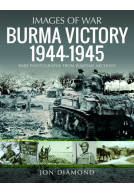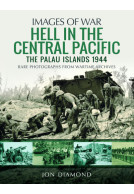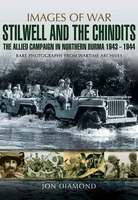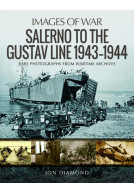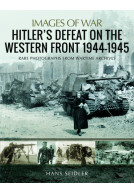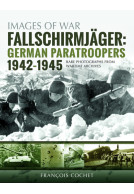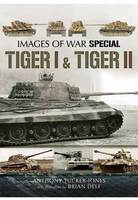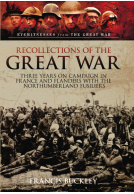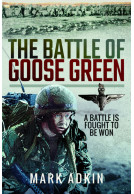The Liberation of The Philippines (Paperback)
Rare Photographs from Wartime Archives
Imprint: Pen & Sword Military
Series: Images of War
Pages: 240
ISBN: 9781526788726
Published: 5th August 2021
(click here for international delivery rates)
Order within the next 5 hours, 37 minutes to get your order processed the next working day!
Need a currency converter? Check XE.com for live rates
| Other formats available | Price |
|---|---|
| The Liberation of The Philippines ePub (46.2 MB) Add to Basket | £6.99 |
General Douglas A MacArthur, Commander of the Southwest Pacific Area, saw the liberation of the Philippines Archipelago as the launching board for the invasion of the Japanese Home Islands. By late 1944, with the capture of New Guinea and surrounding islands, the US Sixth and Eighth Armies were poised for the challenge.
American forces landed on Leyte on 20 October 1944 with the Leyte Gulf naval battle quickly following. By 25 December the island was cleared opening the way for Lieutenant General Walter Krueger’s Sixth Army to invade Luzon on 9 January 1945. Bitter Japanese resistance required Eichelberger’s Eighth Army as reinforcements. Manila finally fell on 4 March. In the meantime Bataan was captured on 16 February and Corregidor on 2 March after a US airborne assault. Fighting continued and MacArthur finally declared the liberation of the Archipelago on 5 July, just a month before the Atom bombs fell on Hiroshima and Nagasaki.
This superbly illustrated work in the Pacific War Images of War series leaves the reader in no doubt as to the intensity of the land, sea and air operations required by the Allies to defeat the Japanese.
As featured in
Irregular Magazine
Highlight: This superbly illustrated work in the Pacific War Images of War series leaves the reader in no doubt as to the intensity of the land, sea and air operations required by the Allies to defeat the Japanese.
"...a very good reference for modelers looking for ideas for dioramas."
IPMS/USA
The Images of War series works well on two levels: as an introduction to the campaign or battle and as a visual supplement to other more in-depth works. Diamond’s contribution here satisfies both requirements. His text and photographs convey the magnitude of the fighting while keeping their sense of a very human conflict often fought at close quarters. What also comes across is the variety of combat situations the Americans and Filipinos encountered, and the range of tactics used to defeat the Japanese. This is therefore a solid addition to the Images of War series.
Beating Tsundoku
Read the full review here
"New and noteworthy".
WWII History Magazine - February 2022
The photos throughout the book all have informative captions which add to the main text and while a few are well known, the bulk I hadn't seen before. The devastation on some of the islands is obvious, and some pictures quite graphically illustrate the fate of so many Japanese troops who followed 'Bushido' chose death over capture, though there are more captured soldiers towards the end of the war.
Military Model Scene
Thanks to the benefit of being able to look backwards in time, we know that the Japanese Imperial forces were finally defeated in WW2, but it wasn't an easy job. These photos show the seriousness of the war in the Pacific, the effort required by the sea, air and land forces of the USA along with the fierce resistance offered by their Japanese opponents, prior to the impact of the atomic bombs which brought the war to an end. Good reading and photos for anyone interested in the history of the war in the Pacific.
Read the full review here
Credit should go to the Images of War Series, which I think as the books that cover the Far East are providing an important job, in they are making the Far East an equally important part of the war, as well as the Western Europe Theater which certainly does dominate WW2 coverage in this country. As someone whose Grandad fought out in the Far East books like this gives the impression that these battles out East were important and those fighting weren’t forgotten because they weren’t fighting in Europe. What I love about these books is that even though they are all still images, these photographs can still tell so much of the story or the battle. The pain, suffering and bravery are quite evident to see and some can tell the story so much in one photograph. The Text that accompanies the photos in this book is equally excellent and always strike the right balance, Jon Diamond has done a great job of telling the story of the Philippines here, a book I would happily recommend to others.
UK Historian
Read the full review here
"...dioramists can get plenty of ideas from these pages."
Historical Miniatures Gaming Society
Read the review here
This offering from Pen and Sword, is as typical for this series a visual delight. That will enable the modeller to pick out scenes they may wish to depict, or to take attributes from them and mix and match. The value of which is increased via the captions.
Armorama
Read the full review here
About Jon Diamond
Jon Diamond MD is a kidney specialist in the USA with a deep interest in the Second World War. He is a keen collector of photographs. His Stilwell and the Chindits, War in the South Pacific, Invasion of Sicily, Invasion of the Italian Mainland: Salerno to Gustav Line, 1943-1944, Onto Rome 1944; Anzio and Victory at Cassino, Beyond Rome to the Alps; Across the Arno and Gothic Line, 1944-1945, Op Plunder - The Rhine River Crossing, MacArthur’s Papua New Guinea Campaign, Hell in the Central Pacific, Liberation of the Philippines, Burma Victory, The Fall of Malaya and Singapore and The Battle of Okinawa 1945 are all published by Pen and Sword in the Images of War series.









